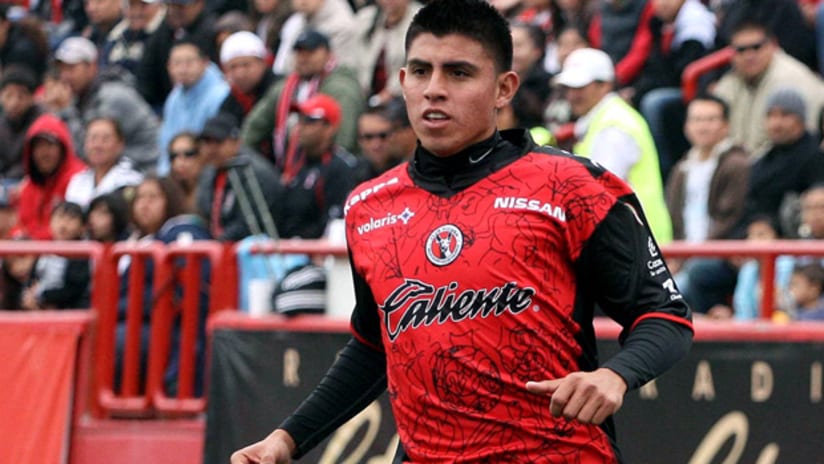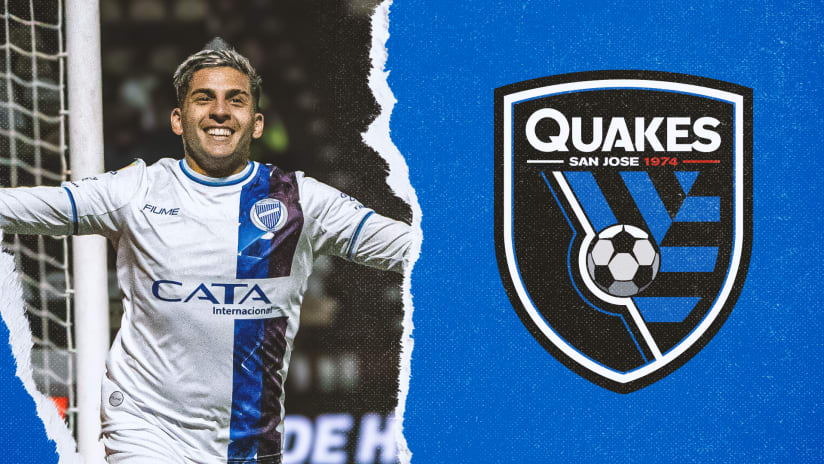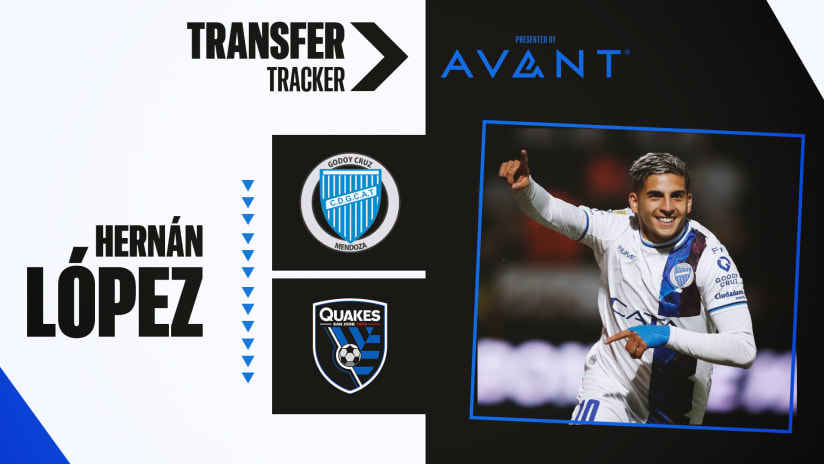Los Angeles native Joe Benny Corona has already enjoyed a unique path to professional soccer, but his story might get a whole lot better this weekend.
Now, after a chance tryout that led him from Southern California to a Mexican border town and a team named after an indigenous hairless dog, he has to get past perhaps the best player in Mexico’s history to help make his dream come true.
Corona, a midfielder for Club Tijuana, is trying to help Xoloitzcuintles gain automatic promotion to the Mexican Primera División. For that to happen, Tijuana must get past Irapuato in the Liga de Ascenso’s Clausura 2011 finals, which continue on Saturday.
Irapuato’s biggest name? Former Chicago Fire star Cuauhtémoc Blanco.
If Tijuana can gain promotion to Mexico’s top flight, 20-year-old Corona would take a major step closer to a childhood dream and help a town obtain what was once an unheard-of dream.
“There are a lot of fans here that root for first-division teams, so a first-division team here would be a good project,” he told MLSsoccer.com by phone this week. “That’s what they’ve been looking for.”
XOLOS RISING
Club Tijuana was founded in 2006, but the club certainly didn’t gain much traction at first. The city of Tijuana is inherently a transient one, with more than 50 million people passing through the San Ysidro border each year, making it the busiest land-border crossing in the world.
And despite a booming population now inching closer to 1.8 million people (it was the fifth-largest city in Mexico in 2010), soccer isn’t necessarily king like in other regions of the country. Tijuana residents are just as likely to follow boxing or baseball, and the city boasts two professional basketball teams.
But the club persevered after a rocky start, took on the name Xoloitzcuintles and began to embody the new moniker. The name refers to a breed of Mexican hairless dog that’s long on history but not necessarily so on modern recognition: they date back more than 3,000 years and were fondly regarded in Aztec mythology, but the American Kennel Club spent nearly 30 years beginning in the mid-1950s under the impression the breed had died off.
But the Xolos, like their mascot, are definitely alive. They nearly gained promotion in 2009 but failed to get past Mérida in the Clausura playoffs.
This year, promotion is within reach once more.
Tijuana, who feature several former first-division players, including Gerardo Galindo, Mauro Gerk and Javier Gandolfi, won the Liga de Ascenso's Apertura 2010 crown, giving the club an extra cushion. To gain promotion to the Primera División, each year's Apertura and Clausura champions meet in a two-legged playoff to see who goes up.
Should Tijuana win the Clausura finals as well, they’ll gain automatic promotion.
But that's no guarantee. The Xolos and Irapuato drew 1-1 in the first leg of the series in Tijuana on Wednesday. Blanco and los Freseros will host the second leg on Saturday. If Irapuato win the series and the Clausura title, the two teams will meet again for a two-match set next week.
“We have two chances," Corona said. "If we don’t win [this series], we still have another shot at it. But we want to close it already."
NOTHING TO LOSE
The club’s rise to prominence coincides with Corona’s own ascension in soccer. He’s the latest American to test the waters down south, but his path to Mexican success is perhaps the most unique of all those who have found a home abroad.
Corona, after all, was on a path that was aimed directly at MLS. Like many eventual US stars, he played his youth soccer at noted San Diego-area club Nomads, where Paul Caligiuri, Marcelo Balboa, Eric Wynalda, Frankie Hejduk and Steve Cherundolo also cut their teeth.
After a stellar high school performance for Sweetwater High School in National City, Calif., a stone’s throw from the Mexican border, Corona attended San Diego State University. Finances, though, took their toll on Corona and he was all but set to leave the school because of it.
A friend intervened.
“I wasn’t coming back because of financial issues,” Corona said. “One of my friends from Tijuana was like, ‘Just try out for this team. There’s a new team down in Tijuana and they’re trying to get promoted to the first division,’ and I said, ‘OK, it’s not a bad idea.’”
Secretly, though, he had a different opinion.
“I didn’t even want to come at first,” Corona admitted. “I wanted to stay at San Diego State. I tried to talk to my coach and see if he could help me out a little bit more with my scholarship. I was trying to stay in school and hopefully get drafted to MLS and keep playing over there, but this opportunity came up.”
Had Corona stayed at San Diego State, he would be looking to enter his senior year later this year. Or he probably could have declared for the MLS SuperDraft, and taken a different path to the pro ranks.
“I could have stayed in school and gotten my degree and [things may have] kept working out,” he said. “This was a faster way to go to a pro level. That’s how I look at it.”
He instantly caught the coaches’ eyes at Tijuana and gained a spot on the club. It was only a spot in the club’s youth squad, but it was a challenge he was glad to accept.
“I had to move up by myself,” Corona said. “[Coaches] didn’t really help me out. The coaches trusted me and I had faith, and that was it.”
Now, years after his path diverged to a new challenge with an unlikely team sharing in the awe of a dream so close to fruition, Corona is 90 minutes from the biggest moment of his career.
“I think I still have a long way to go, but look at me now,” he said. “I’m right here, playing, one step away from the first division.”












